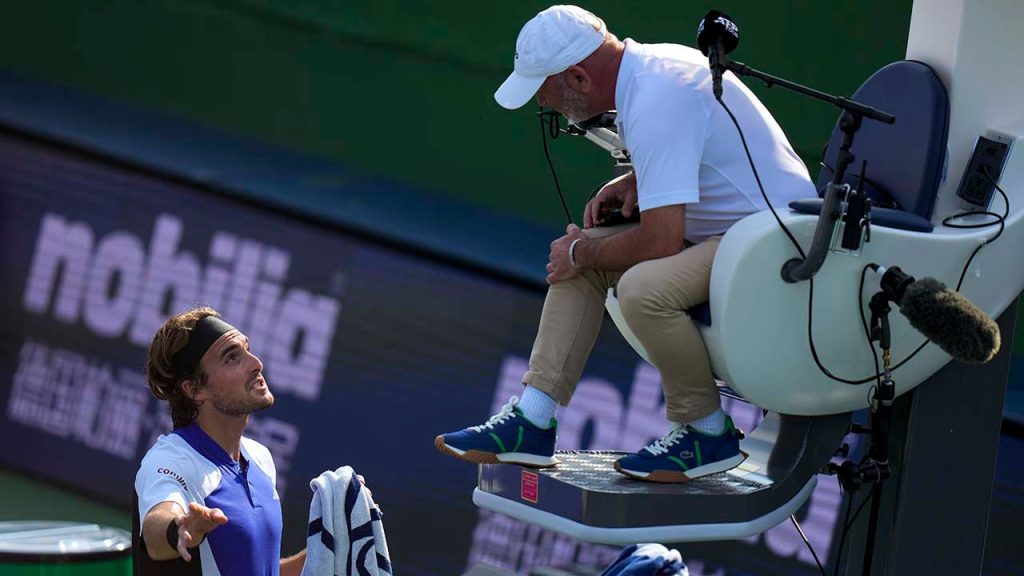Temperatures soared at the Shanghai Masters as Greek tennis player Stefanos Tsitsipas engaged in a heated exchange with chair umpire Fergus Murphy during his Round of 16 match against Daniil Medvedev. Tsitsipas became upset after being issued a time violation following the loss of his first serve in the second set. He questioned why the umpire was targeting him and insisted that he was the most consistent player on the tour. Despite Murphy’s attempts to explain the situation, Tsitsipas refused to continue playing unless he could speak with a supervisor, accusing the umpire of having no understanding of tennis and lacking compassion for the physical demands of the sport. While Tsitsipas did eventually speak to a supervisor, he ultimately lost the match 7-6 (3), 6-3.
This incident was not isolated, as American tennis star Frances Tiafoe also found himself in a confrontation with chair umpire Jimmy Pinoargote during the tournament. After his loss in the third round, Tiafoe issued an apology for his heated outburst towards the umpire, acknowledging that his actions were unacceptable and not reflective of his character. Despite his frustration in the heat of the moment, Tiafoe expressed regret for his behavior and vowed to handle similar situations better in the future. These confrontations highlight the intense emotions and pressure that can arise during high-stakes tennis matches, leading to clashes between players and officials that sometimes result in public apologies.
The tense exchange between Tsitsipas and Murphy underscores the importance of effective communication and maintaining composure in professional tennis. While players may feel aggrieved by decisions made by umpires, it is essential to handle disagreements respectfully and constructively. Tsitsipas’ refusal to accept the umpire’s ruling and his personal attacks on Murphy showcase the challenges faced by both players and officials in maintaining a fair and respectful playing environment. The incident serves as a reminder of the need for sportsmanship and professionalism on the court, even in moments of frustration or disappointment.
Both Tsitsipas and Tiafoe’s confrontations with chair umpires at the Shanghai Masters shed light on the mental and emotional toll that competitive tennis can take on players. The pressure to perform at a high level, combined with the intensity of professional tournaments, can lead to heightened emotions and heated exchanges. While it is natural for athletes to experience frustration and disappointment during matches, it is crucial for them to handle these emotions in a constructive manner and show respect for the officials, opponents, and fans. The public apologies issued by Tiafoe and Tsitsipas serve as a recognition of their inappropriate behavior and a commitment to improving their conduct in the future.
In the world of professional tennis, incidents like the ones involving Tsitsipas and Tiafoe serve as a reminder of the challenges and responsibilities that come with competing at the highest level. Athletes are expected to demonstrate sportsmanship, respect, and integrity both on and off the court, regardless of the pressures they may face during matches. While moments of frustration and conflict may arise, it is imperative for players to address these situations with grace and maturity, acknowledging their mistakes and learning from them. The Shanghai Masters confrontations offer valuable lessons for all players, officials, and fans about the importance of maintaining professionalism and respect in the competitive arena.


